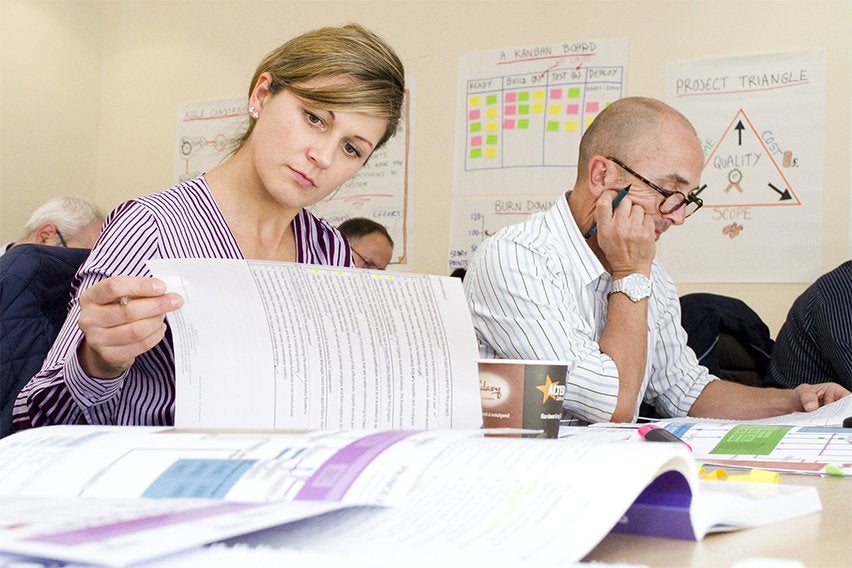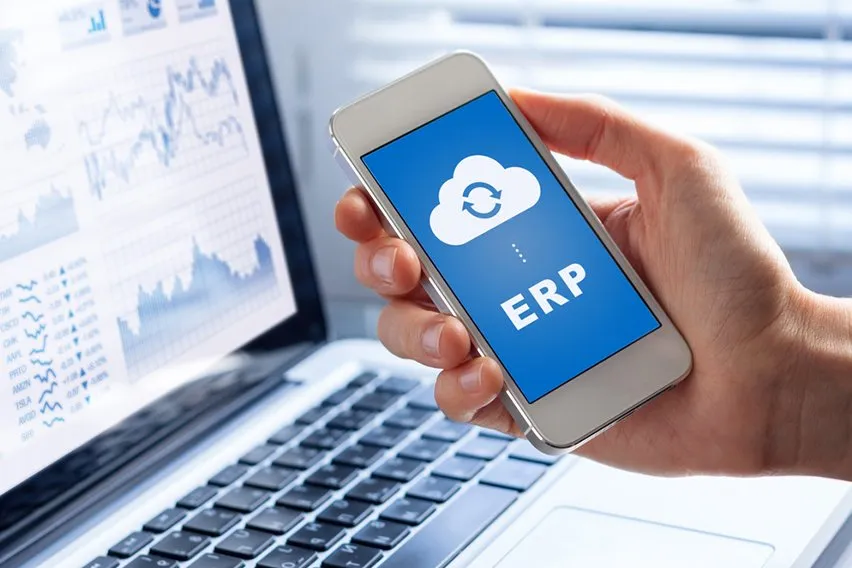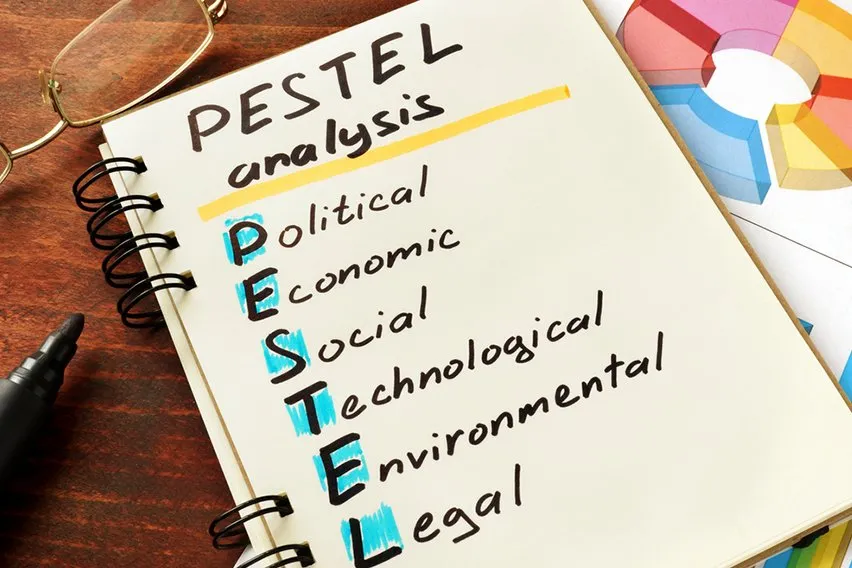What Is Project Management? Definition & Project Life Cycle Stages

Think about the last time that you were part of a project. It could have been while you were in school or at some point during your professional career. How many different things were going on at once?
Each team member probably had their own role and outlined tasks and responsibilities. There were also most likely relevant timelines associated and a final project due date. Did your project run smoothly? Or were there some hiccups and speed bumps along the way?
Since there can be many moving parts to a project, effective project management skills will help with a successful project. They will also help ensure the project team is as efficient and productive as possible.
Here is everything you need to know about project management.
Here’s What We’ll Cover:
What Is the Project Management Life Cycle?
What Is Project Management?
In the simplest of ways, project management is leading your team towards your goals within a certain timeframe. Each project is going to have a deadline, so the more efficient that you can be from start to finish will avoid any delays. It can be a critical practice that applies different tools and techniques.
It depends on the type of project, but there are some main concepts to project management. It will usually involve project planning, tracking and communication throughout the duration. The ultimate goal is to deliver a successful end result within the timeframe, relevant scope and outlined budget.

What Is the Project Management Life Cycle?
To help standardize best practices, the Project Management Book of Knowledge (PMBOK) was created. The guide is always getting updated and breaks down fundamental practices. These project management methodologies can get applied to simple or complex projects.
According to the PMBOK, the elements of a project life cycle should include a few common details.
- What is the work that must get accomplished?
- What are the deliverables that need to get generated and reviewed?
- Who are the team members involved and what are their roles?
- How can each phase of the life cycle get controlled and approved?
Determining these elements will let you effortlessly guide your project from start to finish. Each project wil go through the project life cycle, and it’s made up of five project management stages. Initiation, planning, execution, monitoring and control and closure.
Initiation Stage
This is where everything starts. Project managers need to ensure that the project has value and can get completed. This can include justifying project requirements and outlining the time needed and actual costs.
Most project managers begin this phase with a project charter, which is a document that outlines the project deliverables. The project team will usually get together for one final meeting before kicking off the project. They can discuss project goals, processes and ask any questions.
Planning Stage
After you have gone through the initiation phase, you can start to plan the details of your project. The idea of this project management process is to create a project plan that includes every relevant detail. Things like associated costs, any risks, resources needed and timelines. The project scope will also get defined during this stage.
This will break down the project into different activities, deliverables and milestones. Doing this makes it easy for managers to create a project schedule and delegate tasks to project members. They can also create a communication plan for larger projects.
Execution Stage
It’s time to hit the ground running. The execution stage is when the outlined tasks, deliverables and milestones get tackled. Throughout the process, the project manager can allocate more resources if needed and identify any risks.
Since most details get outlined during the planning stage, you can deal with any problems and implement any needed changes.
Monitoring and Control Stage
The monitoring and control stage of project management works in harmony with the execution stage. It involves monitoring your project progress and tracking the performance of the deliverables. This helps the project stay on track and stay within budget.
Some of the biggest issues with monitoring and control are related to the cost, time and scope of the project. The monitoring and control stage can allow you to make sure that those factors don’t go off track, like with scope creep.
Closure Stage
This is when your final deliverables and milestones are presented to your client or stakeholder. Any resources or funds are released and any relevant documentation is signed and completed. The project manager and the project team will usually do a debrief to go over all of the details of the project.
You can break down the actual performance of project phases or go over key performance indicators. Discussing these details allows for better cost management for future projects. And it will lead to more successful project management.

Key Takeaways
There can be a lot to worry about and a lot of moving parts to a project. You need to worry about developing the right deliverables, staying within budget and avoiding scope creep. Plus, if you’re a project manager you also need to worry about effectively managing your team.
Projects don’t have to be overwhelming. There are project management tools and resources out there to help you be as efficient and productive as possible. And this is why the PMBOK was created.
Here are a few things to help get you started:
- What needs to be done?
- What do you want to achieve with your project?
- Who is part of the project team?
- How are you going to control and monitor the project life cycle?
After you figure out those details, you can start into the imitation stage of the project management life cycle. From there, you can move on to the planning stage to ensure you have everything you need.
You will then go through the execution and monitoring and control stages, and then finish off with the closing stage. There isn’t a one-size-fits-all when it comes to project management. But the 5 project management life cycle stages set a solid foundation.
Did you enjoy reading this guide? Head over to our resource hub for more great content!
RELATED ARTICLES
 How to Pay Corporation Tax?
How to Pay Corporation Tax? What Is Flat Rate VAT Scheme & How It Benefits Business
What Is Flat Rate VAT Scheme & How It Benefits Business What Is Dropshipping & How Does It Work?
What Is Dropshipping & How Does It Work? What Is ERP? 5 Best ERP Software Choices for Your Business
What Is ERP? 5 Best ERP Software Choices for Your Business 5 Best CRM Software Options for Your Business
5 Best CRM Software Options for Your Business What Is PESTEL Analysis? Explanation of the Framework
What Is PESTEL Analysis? Explanation of the Framework